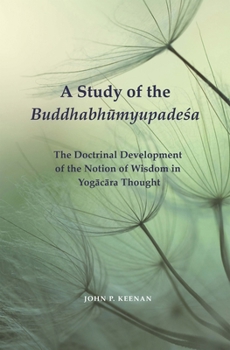A Study of the Buddhabhūmyupadeśa: The Doctrinal Development of the Notion of Wisdom in Yogācāra Thought
(Part of the Contemporary Issues in Buddhist Studies Series)
Select Format
Select Condition 
Book Overview
In this volume John Keenan provides access to an otherwise largely unstudied Mahayana text, the Buddhabhumi-sutra, along with two commentaries that interpret the sutra in terms of Yogacara thought: the Buddhabhumivyakhyana by silabhadra, extant in Tibetan, and Bandhuprabha's Buddhabhumyupadesa from the Chinese, which expands on silabhadra's text with additional explanation. Due to the influence of these two commentaries, the Buddhabhumisutra has traditionally been considered a Yogacara text. In the course of his studies Keenan has come to understand this sutra as an important part of the Indic literature of Pure Land Buddhism. His approach to the text thus provides a more expansive understanding of the historical origins of Pure Land thought and practice, as well as highlighting the interpretive processes through which sutra texts can be mined for a variety of different meanings. This important study offers a resource for developing contemporary interpretations of Pure Land teachings.
Format:Hardcover
Language:English
ISBN:1886439567
ISBN13:9781886439566
Release Date:November 2014
Publisher:Institute of Buddhist Studies
Length:561 Pages
Weight:2.05 lbs.
Dimensions:1.7" x 6.3" x 9.1"
Customer Reviews
5 customer ratings | 5 reviews
There are currently no reviews. Be the first to review this work.




















